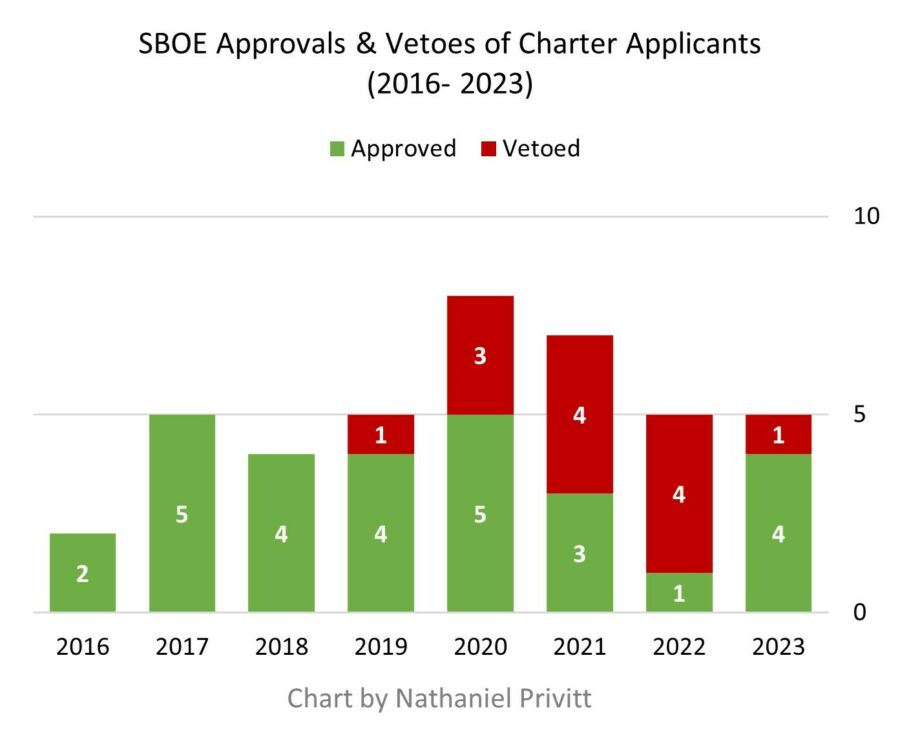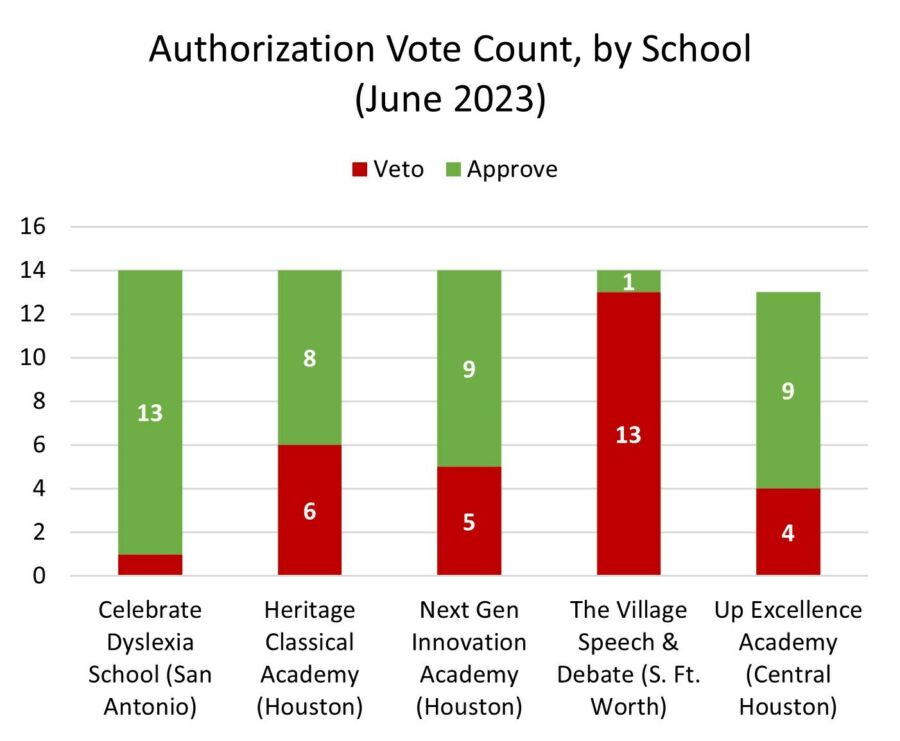Every parent deserves transparency, quality, respect, and choice in their child’s education. That’s our mission at TPPF’s Next Generation Campaign and we’re excited to report big wins this week!
Transparency & Quality: As national scores continue to show us, there is a huge gap between the TEKS (what we expect Texas children to learn) and what they actually know. One key cause is that only 19% of lessons are on grade level. An A+ on a below-grade assignment is not only insufficient—it’s harmfully misleading. It hides the fact that our children are falling behind.
This legislative session, education chairmen Rep. Brad Buckley and Sen. Brandon Creighton led the way to improve the quality of instructional materials. TPPF was proud to join The Coalition for Education Excellence and fight for the transparency and quality that Texas parents deserve. Last Monday, Gov. Abbott signed HB 1605 into law and this week the SBOE began to implement it.
Under the new law, the SBOE will review instructional materials and determine both whether they align with the TEKS and whether they are high quality. In addition, parents will be given full and complete online access to these instructional materials and can petition for an audit of the materials for any subject or grade taught in their child’s school. The new law will help students in many other ways, including moving all public schools to phonics instruction and away from three-cueing.
The SBOE’s authority under the new law is broad and faithful implementation will be important. TPPF will support the SBOE every step of the way. This week we offered two draft working documents, linked below, to support policymakers as we all work together to improve instructional materials for the benefit of our public-school students. We will update these as needed throughout implementation.
Respect & Choice: This Friday, the State Board of Education (SBOE) stood with parents looking for educational opportunity by voting to approve four of the five new charter schools proposed by the Texas Education Agency. (TEA) Each year, TEA accepts applications for new charter schools and recommends those it deems qualified to the SBOE, who may veto the recommendations with a majority vote.
Despite the growing demand for educational choices, and over 66,000 Texas students currently on waitlists to get a seat in a charter school, the number of new charter approvals had slowed to a trickle. Since 2019, the SBOE had vetoed a larger and larger percentage of proposed charters. Today’s news is a watershed moment: last year, the SBOE vetoed four out of the five applicants. This year, the SBOE approved four out of the five! From 80% vetoed to 80% approved, this is a huge step!

Celebrate Dyslexia, proposed for San Antonio, received an almost unanimous favorable vote, with only one vote against, while Heritage Classical Academy, NextGen Innovations Academy, and Up Excellence Academy, all proposed for Houston, were approved by a narrower margin.
TPPF’s Richard Johnson and Matt McCormick testified in favor the applicants based on our analysis of the need in their proposed communities: More than 35,000 children near these five locations are on charter school waitlists or applied to a magnet school but were denied.

TPPF congratulates the four new charter schools and looks forward to their future success!
Also on charter schools, the SBOE voted to amend the charter school authorization process by shortening the communication “blackout” period for charter school applicants. Currently, a charter school applicant may not communicate with the commissioner of education, his designee, the SBOE, or an application reviewer from the time the school leader applies for a charter until the SBOE takes its final vote on the applications (TAC Sec. 100.1(d)). The amended process allows school leaders to begin contacting SBOE members when their application passes external review with a qualifying score, which is the second of five steps in the application evaluation process. This change will make the charter authorization process more fair and transparent by allowing charter schools to address concerns or provide additional information.
TEKS Work Groups: The SBOE also approved changes to working documents that reflect the amendments to the TEKS review workgroup process made in the June meeting. The Board approved two documents that summarize the new steps it will take in the future. The new TEKS review will allow the elected representatives of the people of Texas, the SBOE, to have a central and ongoing role in the creation of Texas standards. Currently, a review of social studies TEKS will occur in 2025. We engaged on the topic last year and will continue to do so. Stay tuned for more information as it’s available!